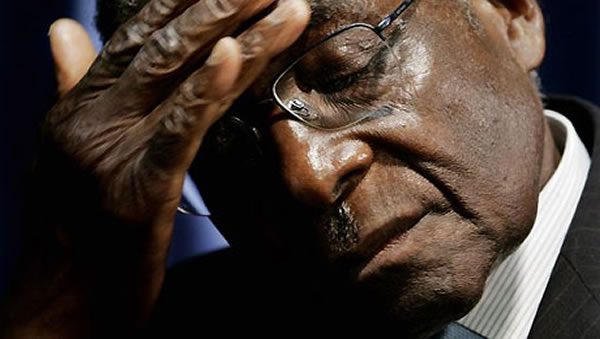
Opinion
Popular uprisings and coups pandemic: Parallels between Zim, Guinean coups
Published
3 years agoon
By
NewsHawksBRIAN TAMUKA KAGORO
A COUP d’etat is generally “a sudden decisive exercise of force in politics often leading to the violent overthrow or alteration of an existing government by a small group”.
In the history of independent Africa, military coups have had four troubling elements, namely: externally engineered national divisions; fractures within the state and challenges of nation-building; the link to external interests in a country’s natural resources; and prosecution of an ideological (often conservative) regime change agenda.
For example, Kwame Nkrumah was deposed in 1966 by the National Liberation Council (NLC) which under the supervision of international financial institutions privatised many of Ghana’s state corporations thus reversing the founding Ghanaian leader’s socialist policy of nationalisation.
Nkrumah lived the rest of his life in Guinea Conakry as Sekou Toure’s honorary co-president.
The NLC, which deposed Nkrumah, led the Ghanaian government from 24 February 1966 to 1 October 1969. Now declassified American files confirm that the NLC was a Central Intelligence Agency (CIA)-supported project.
The historical effects of coups in Africa have been dastardly and they are inseparable from the pervasive cultures of impunity, crimes against humanity and grand corruption. In very rare circumstances did coups result in developmental and governance progress.
Surprise Guinea coup
Guinea’s special forces commander Lieutenant-Colonel Mamady Doumbouya announced the seizure of power from President Alpha Condé on national radio and television. The takeover was preceded by heavy gunfire around the presidential palace on Sunday morning and the subsequent arrest of Condé.
Doumbouya announced the immediate replacement of regional governors with soldiers, dissolution of parliament, suspension of the constitution, closure of all borders (air, land, and sea) and the formation of the National Committee for Rally and Development.
He cited lack of respect of democratic principles, non-inclusive political processes, financial mismanagement, rampant corruption, lack of access to essential public services, non-respect for human rights and widespread poverty, among other reasons, for their actions.
Doumbouya declared that: “The Guinean personalisation of political life is over. We will no longer entrust politics to one man, we will entrust it to the people.”
Quoting the late Ghanaian President Jerry Rawlings who seized power through a military coup in 1979, Doumbouya self-righteously declared that: “If the people are crushed by their elites, it is up to the army to give the people their freedom”.
Coups, democracy and transformation
There are interesting parallels between the Guinean and Zimbabwean coups both in terms of the precipitous events, the agents and consequences.
The Zimbabwean opposition and civil society welcomed the ouster of the late former president Robert Mugabe and even participated in the military-supported or organised mass demonstrations to rescue the stalling coup.
The opposition was co-sponsor of the motion that led to Mugabe’s farcical impeachment before the joint houses of parliament.
In Guinea, no attempt was made to dress the coup with any veneer of legality.
There was no impeachment let alone a military-assisted popular uprising by the masses. The soldiers shot their way to the presidential palace. The masses only cheered later as the military did a victory parade in the streets of Conakry.
The Guinean opposition’s response to the coup – similar to Zimbabwe’s – has been a cautious welcome or indifference. Mamoudou Nagnalen Barry from the opposition National Front for the Defence of the Constitution (FNDC) told the BBC that: “We don’t want to be happy with a coup, but in certain circumstances like in Guinea now, we will say we are really happy with what is happening because without that, the country will be stuck in [the] endless power of one person who wants to stay in power forever”.
An elusive transformation
Guinea has massive bauxite reserves and large deposits of iron ore, gold and diamonds. Ironically, following the coup, prices of aluminium climbed the highest in more than a decade due to concerns over supplies.
Guinea also has a very high debt-to-GDP ratio (34.5%), high government spending as a percentage of total output (GDP). Since 2018, budget deficits have averaged 1.2% of GDP. The costs of electricity connections as a percentage of per capita income have shot up significantly and state-owned enterprises responsible for water and electricity, social service delivery, are highly inefficient and corrupt.
The Guinean coup, therefore, took place in a context of widespread discontent regarding recent increases of fuel prices and the high cost of living.
Condé, once touted as the Nelson Mandela of Guinea, rose to power in an era that promised great hope, but one that has sadly resulted in greater darkness at noon. He had become an increasingly autocratic and erratic authoritarian relying on force to manufacture either silence or consent amongst Guineans.
The pre-coup Guinean crisis – like the Zimbabwean one – was a confluence of several historical and contemporary factors including: the conflation of party, state and the economy; the personalisation of governance and national politics; incomplete nation-building and the mortgaging of national assets to foreign elites by local compradors.
Prior to the Zimbabwean coup, Mugabe had accused certain elements within the security sector of looting US$15 billion worth of diamonds, although he later admitted in his last interview with journalists at his Blue Roof mansion in Borrowdale in Harare, after the coup, that the figure was a thumb-suck.
In turn, Mugabe’s detractors counter-accused him of personalising the state and positioning his wife Grace Mugabe as his successor. The spat between the securocrats and the first family played out in the public domain with deadly and sometime tragi-comedic consequences.
So too did the Guinean political power inner-circle disputes.
More than 52% of Guineans live in poverty. Guinea’s legal and administrative systems are highly inefficient and corrupt. The judiciary lacks the requisite independence to rein in errant politicians and military personnel.
These factors combine to produce a pervasive culture of impunity and corruption within public institutions and among public officeholders. Condé’s Guinea had become one of the world’s most tragic cases of squandered potential and goodwill.
Power and squandered legacy
In 2010, Condé won Guinea’s first presidential election since independence from France in 1958; he was an iconic figure, a professor of Sorbonne and head of the African Students Association in Paris. As a prisoner of conscience, Condé was on death row.
In 2015, Condé won his second term following boycott of the election by the opposition. A mixture of arrogance, self-delusion and short-sightedness crystallised an unlikely trade union of the discontented against Condé akin to what happened to Mugabe.
In particular, Condé’s recent appointment of the minister of Defence Mohamed Diane as interim prime minister was a catastrophic mistake as it created the impression he was being positioned as the preferred successor, just like Mugabe wanted his own last Defence minister Sydney Sekeramayi to take over from him. It did not help matters that many in the army and the population at large resented Diane.
The appointment exacerbated the already vicious power struggle within Conde’s inner circle.
Conde’s tenacity for power and his bid to remain in office beyond his constitutional term limit essentially destroyed his legacy as a fighter for democracy, justice and human rights.
Mamady Kaba of the League for Rights and Democracy in Africa told the Washington Post that what motivated Doumbouya and his soldiers to stage a coup was “disappointment and a feeling of failure” after Condé’s 11-year rule.
Betrayal
Condé turned Guinea into a top bauxite exporter and attracted significant foreign direct investment and trade. These however did not translate into real changes in the lives of ordinary Guineans.
There are accusations that Condé mortgaged off the bauxite to Chinese companies which over-exploited it and made the market price uncompetitive.
The list of local grievances is inexhaustible, but there are also several potential geo-economic and geo-political interests at play in the Guinea coup. The coup took place within a context of a fraught history of highly contested and violent elections in Guinea’s nascent democracy and the Sahel as a region.
Across the Sahel and Gulf of Guinea, there are growing protests and conflicts, especially by the youth who feel let down by the state, the economy and civil society.
Guinea boasts of a strong civil society with a long history of resistance to authoritarianism and an equally long tradition of anti-colonial and anti-imperial struggles.
Under Toure, Guinea resisted French imperialism and chose a socialist path. Condé was a passionate opponent to Toure and his successors as he campaigned for multi-party democracy, economic liberalisation, constitutionalism and human rights – the platform on which the late main opposition MDC founding leader Morgan Tsvangirai campaigned.
Hence his backing by several Western states and donors opposed to the socialist policies of Toure. Condé’s political career came to a close on a contradictory note with him now the symbol of greed and an unbridled will to power – forced out ignominiously. He detained several opposition political party members and civil society activists without trial since the October 2020 presidential election for his third term, a huge mistake.
Condé imposed a travel ban on Cellou Dalen Diallo, president of the opposition Union of Democratic Forces of Guinea, and Sidya Toure, president of the Union of Republican Forces, has been out of Guinea in self-imposed exile. Both are former prime ministers.
Mugabe and Condé were removed through military coups at the ages of 95 years and 83 years respectively, having extended their terms of office. Although their political backgrounds and what they stood for are different, the longer both leaders stayed in power, the more divisive they became.
Both tended to rely on ethno-regional alliances, securocrats and their families, thus alienating critical institutions and stakeholders.
Given the nature of the deep state, it will take a while before the Guinean security forces are completely rid of Condé loyalists. There are huge expectations upon Doumbouya and his colleagues to stabilise the national economy, address historical grievances, end divisive ethno-regional politics, transition the country back to democratic civilian rule, the sort of things expected in Zimbabwe after the coup.
If the Zimbabwean experience – and indeed recent Sudanese, Chadian and Malian events – is anything to go by, the instinctive habit of the military will lean towards consolidation of power and transition into civilian office or assumption of a controlling stake in the state.
Ideological, political or entrepreneurial armies
There are interesting differences in the backgrounds, ages and military history of the Guinean and Zimbabwean coup leaders. Doumbouya is a 41-year-old former French Foreign Legion. He is from the same ethnic group, the Malinke, as president Condé, just like Mugabe and former military commander, now Vice-President Constantino Chiwenga, and is from Guinea’s eastern Kankan region.
Yet Doumbouya has very strong connections to Guinea’s former colonial power, France. He holds dual Guinean-French citizenship; is married to a French woman, apart from serving for several years in the French Foreign Legion.
He also has significant connections to Israel, the United Kingdom and United States. There is no evidence or clear motive why these countries would want Condé ousted from power. But the same cannot be entirely ruled out given the vicious competition between Western countries and China and the Middle Eastern countries. Or France’s complex interests in the region and its politics.
Growing Chinese and Russian influence in the Lake Chad Basin, Gulf of Guinea and Sahel generally worries many Western observers.
Doumbouya previously served on missions in Afghanistan, Ivory Coast, Djibouti, Central Africa Republic and close protection in Israel, Cyprus, the UK and Guinea. He is reputed to have excelled in the operational protection specialist training at the International Security Academy in Israel, as well as elite military training in Senegal, Gabon and France.
Ironically, Doumbouya returned home to Guinea at the behest of Condé in order to lead the newly-established French-trained and equipped elite special forces group in 2018.
In Zimbabwe, the coup was orchestrated by senior military officers who had been part of the liberation struggle for Independence and loyally served Mugabe for close to 37 years.
But some of these officers had built strong bonds amongst themselves while serving on several foreign missions, including in the Democratic Republic Congo and Mozambique. These officers in the late 50s and 60s had close relations with the Chinese, British, Russians and Israelis.
Again, there is no verifiable independent evidence to suggest that these countries had any hand in the Zimbabwean coup, although many often accuse former British ambassador to Harare Catriona Laing, and by extension London, of supporting the coup.
The outstanding feature in both the Guinean and Zimbabwean coups is the role and interests of the military in domestic, regional and international economic relations.
This remains a decisive and yet under-researched and equally under-theorised phenomenon.
The AU, Ecowas, the United Nations (UN), African Union (AU), and countries like Nigeria have issued pro-forma statements condemning the coup and calling for the restoration of constitutionalism and democracy.
Ecowas moved to suspend Guinea on Wednesday – days after the coup, calling for a restoration of the constitutional order and release of Condé.
But what constitutionalism or democracy when Condé’s opponents have either been gagged or rotting in jail, as he wilfully manipulated the constitution in order to gift himself a third term?
The AU Shared Values framework and the African Charter on Democracy Elections and Governance and the Ecowas equivalent policies demand that any member state that engages in an unconstitutional change of government should be suspended.
Despite Ecowas’ move, the AU and the international community either have limited leverage or are disinterested in going out of its way to censure the coupsters. But Condé, as AU chairperson, came close condemning the Zimbabwean military takeover, calling it a “coup”.
As a trend, European countries have been reluctant to sanction recent coups in West Africa. The US was the only major power to suspend military assistance to Mali. Unlike on the landlocked Mali, Ecowas first agonised on the option to close borders with Guinea.
Guinea – for the historical reasons explained above – is not part of the French-supported monetary union; it has its own currency. Thus it has presented a special challenge to France and French ambition going forward.
Nobody can stop reggae
As Doumbouya drove through the city on Monday – something occurred akin to what happened in Zimbabwe in 2017 – crowds chanted the military leader’s name, just like they did with Chiwenga. Some people even undressed and shouted “Doumbouya, Doumbouya, and Freedom, Freedom, Freedom!”. Many are wondering what fate awaits Condé and his close allies.
More poignantly, has Africa pressed a rewind button to the 1960s and 70s where questions of governance are settled through the barrel of the gun? Have guns (the military) become the new guarantors of Africa’s waning season of democratisation?
As George Derpanopoulos, Erica Frantz, Barbara Geddes and Joseph Wright asked in their research paper on coups, the big question is: Are coups good for democracy?
Several scholars have recently challenged the standard interpretation of military coups as anti-democratic. Instead, they argue, a coup can help usher in democracy.
However, the above four authors’ research gives pause to such optimism.
To assess whether coups are associated with democratisation, the researchers investigated what usually follows coups against dictators, excluding coups that subvert democracies.
They show that coups are not systematically correlated with democratisation, either during the period from 1950 to 2014 or post-Cold War.
On the contrary, the perpetrators of coups tend to oust dictators, only to impose new ones.
Zimbabwe, like many other post-coup African countries, fits the description.
But then I suppose all this will further loom large as Guinea prepares for either transition, regression or stagnation as has been seen elsewhere.
Many will debate whether soldiers should ever play an active role in civilian politics. Others will theorise about the claim that when ruling elites oppress the poor, only the army can liberate or restore to them their freedoms. What is the impact of coups on politics and democratisation?
In an ideal world the answer to the first question is a resounding “No”! But our world is grossly imperfect and demands a re-think of the neat boxes of our democracy and republicanism theories, or does it?
No doubt, though, that the increased mass protests and coups are an indictment of the failure of democracy to deliver both accountable governance, social well-being and sustainable development.
As Robert Nesta Marley sang, “Only time will tell who is the real revolutionary!”
*About the writer: Kagoro is a prominent Zimbabwean lawyer and Pan-Africanist.
You may like

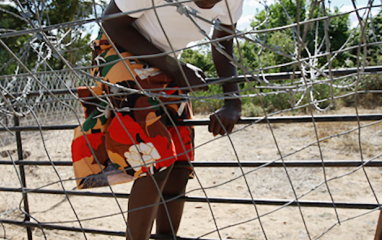

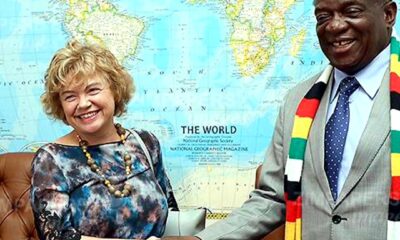



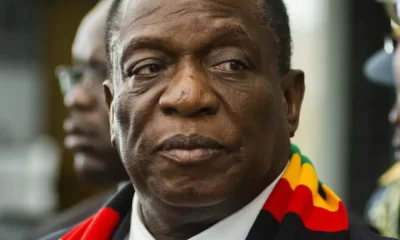

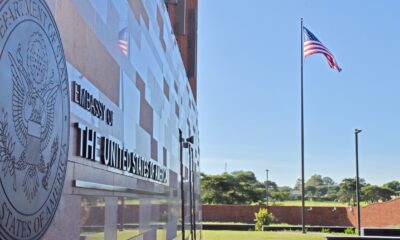

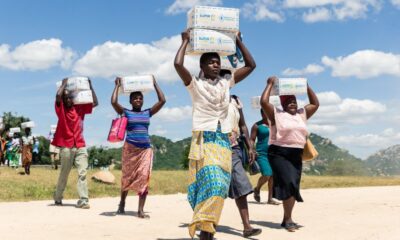









1 Comment